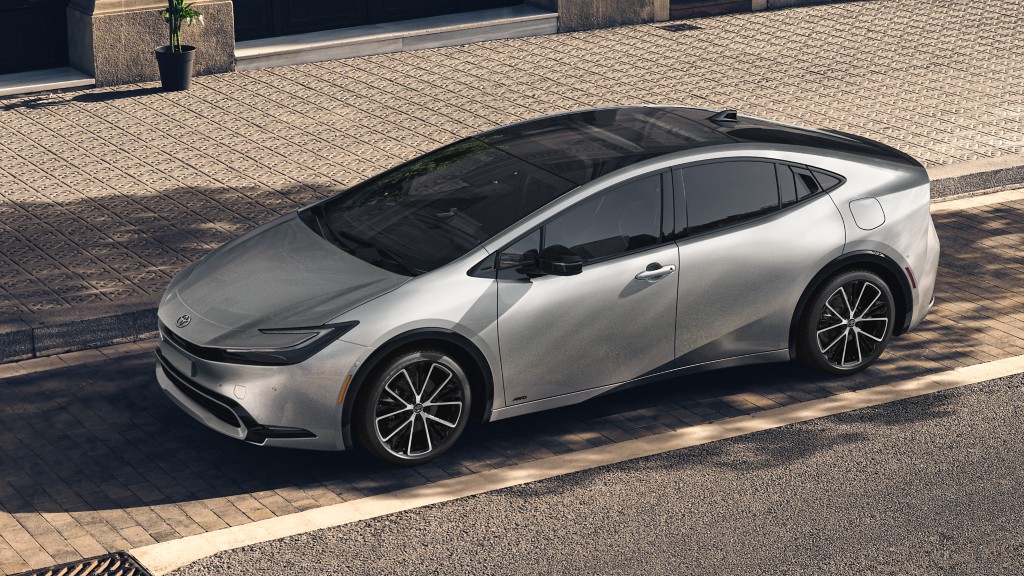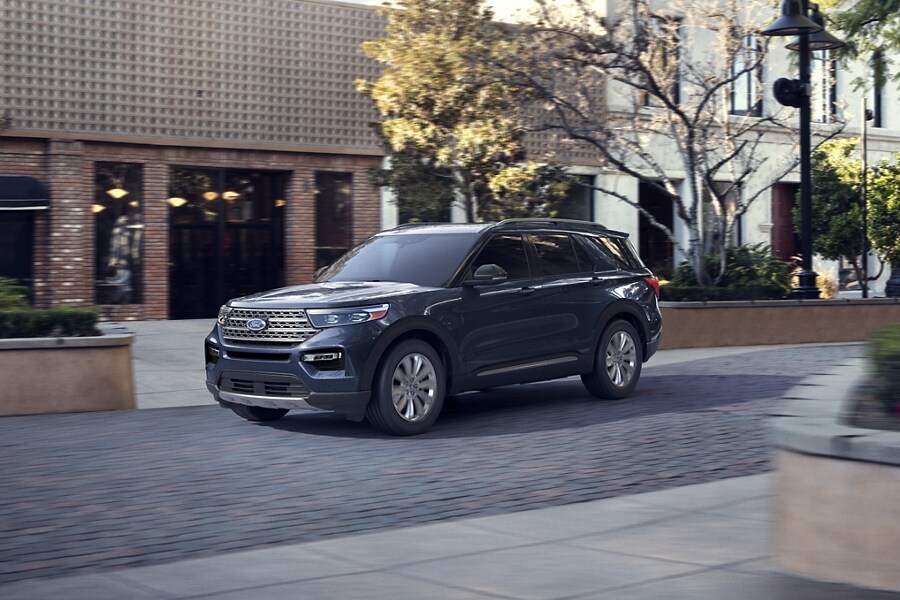Scan QRCode

Due to the slower than expected growth rate of pure electric vehicle sales, mainstream American car manufacturers are adopting intermediate solutions to meet consumer demand.
The share increase of hybrid vehicles exceeds that of pure electric vehicles
According to CNBC, an increasing number of American car companies are reconsidering the feasibility of hybrid vehicles and trucks to meet consumer needs and avoid high fines related to federal fuel economy and emission standards as much as possible. Overall, hybrid vehicles can help the automotive industry reduce fuel consumption and emissions in the short term, while making it easier for consumers to accept car electrification.

Toyota Prius; Image source: Toyota Motor
According to Edmunds data, from January to November 2023, the growth rate of traditional hybrid electric vehicles (HEVs) such as Toyota Prius exceeded that of pure electric vehicles, with sales in the United States reaching around 1.2 million units, accounting for 8.3% of US car sales. Compared to the same period last year, this share has increased by 2.8 percentage points.
As of the end of November, sales of pure electric vehicles in the United States accounted for 6.9% of total sales, approximately 976560 units, an increase of 1.7 percentage points from the same period last year, while sales of plug-in hybrid vehicles (PHEVs) accounted for only 1% of total sales in the United States.
Jessica Caldwell, Executive Director of Edmunds Insight, pointed out, "In the past few years, there has been a lot of discussion about electrification and abandoning hybrid power, but... hybrid cars have not disappeared. There are many consumers interested in electrification, but they may not be ready for full electrification yet."
Compared to traditional hybrid vehicles, they have lower costs and do not have many pain points of electric vehicles, such as range anxiety and insufficient charging infrastructure. Edmunds data shows that the average selling price of traditional hybrid vehicles in the United States this year is $42381, lower than the average price of pure electric vehicles of about $59400; The average selling price of plug-in hybrid vehicles is $60700; The selling price of traditional internal combustion engine cars is $44800.
Morgan Stanley stated earlier this month that Toyota, Honda, and Hyundai contribute 90% of hybrid vehicle sales in the United States, and these car manufacturers are actively trying to increase production and sales of traditional hybrid vehicles in the United States.
Eric Watson, Vice President of Sales at Kia USA, said, "The transition to pure electric transportation will take time, and traditional hybrid vehicles and plug-in hybrid vehicles will play an equally important role in Kia USA's short-term and medium-term goals."
The strategies of Detroit's three giants each have their own biases
In the hybrid market, the strategies adopted by the three major car manufacturers in Detroit are different.
Among them, although Ford also offers plug-in hybrid vehicles, it leans more towards traditional hybrid vehicles. In September this year, Ford announced plans to double the sales of V-6 hybrid vehicles in the United States among its 2024 models. According to CEO Jim Farley's plan, the production of hybrid electric vehicles will increase fourfold in the future.
As of November, Ford's sales of hybrid vehicles in the United States this year have increased by 23% compared to the same period in 2022, exceeding 121000 units, accounting for 6.8% of its total sales. In contrast, Ford's sales of pure electric vehicles increased by 16.2% year-on-year, reaching approximately 62500 units, accounting for 3.5% of its total sales.

Ford Explorer; Image source: Ford Motor
Before launching a series of electric vehicles next year, Stellantis' electrification strategy will rely more on plug-in hybrid vehicles. The company has the highest sales of plug-in hybrid vehicles in the United States, with such models accounting for about 10% of the company's third quarter sales, with Jeep Wrangler and Grand Cherokee accounting for the top spot in sales.
However, General Motors seems not yet ready to change its electric vehicle plans and still hopes to achieve full electrification by 2035. More than a decade ago, General Motors led the development of plug-in electric vehicles with the Chevrolet Volt. However, due to concerns about demand and cost, the company discontinued this model in early 2019. Since then, apart from the recently launched Chevrolet Corvette E-Ray hybrid, General Motors has not launched any other hybrid models in the United States.
Recently, General Motors CEO Mary Barra stated, "We still plan to turn all light vehicles into electric vehicles by 2035. We will adjust according to the market and demand, and we will be guided by consumer demand." In August, General Motors President Mark Reuss pointed out his "flexible" attitude towards hybrid vehicles as a way to meet federal regulations.
For Toyota, the recovery of hybrid vehicles is particularly important. Last year, the company became a target of criticism from environmental organizations for its development strategy in traditional hybrid vehicles, plug-in hybrid vehicles, and electric vehicles. Critics argue that Toyota's strategy lacks a commitment to the future of pure electric vehicles.
Toyota's statement at the time was that it was meeting consumer needs and planned to gradually promote electric vehicles globally, and now Toyota still follows this strategy. According to The Wall Street Journal, Toyota Chairman and former CEO Akio Toyoda said in October about the current state of the electric vehicle market, "People have finally seen reality."
This article is reprinted from Gaishi Automotive Information Network
AMS2024 Exhibition Guide | Comprehensive Exhibition Guide, Don't Miss the Exciting Events Online and Offline
Notice on Holding the Rui'an Promotion Conference for the 2025 China (Rui'an) International Automobile and Motorcycle Parts Exhibition
On September 5th, we invite you to join us at the Wenzhou Auto Parts Exhibition on a journey to trace the origin of the Auto Parts City, as per the invitation from the purchaser!
Hot Booking | AAPEX 2024- Professional Exhibition Channel for Entering the North American Auto Parts Market
The wind is just right, Qianchuan Hui! Looking forward to working with you at the 2024 Wenzhou Auto Parts Exhibition and composing a new chapter!
Live up to Shaohua | Wenzhou Auto Parts Exhibition, these wonderful moments are worth remembering!
Free support line!
Email Support!
Working Days/Hours!





